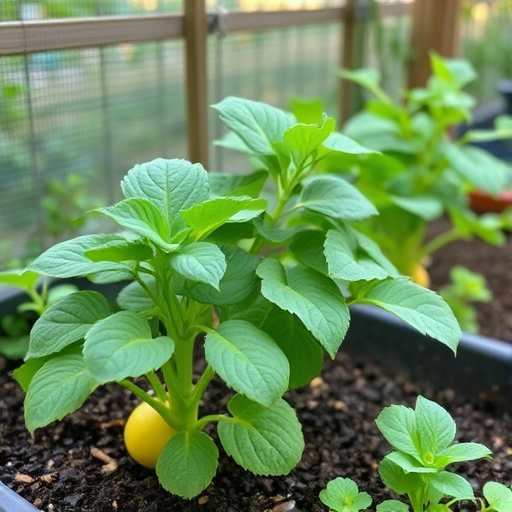The digital nomad lifestyle has become increasingly popular in recent years, offering the freedom to travel while maintaining a career. Advances in technology, remote work opportunities, and the rise of flexible work arrangements have made it possible for people to work from almost anywhere in the world. If you’re considering transitioning to a digital nomad lifestyle, here are some key insights on how to work remotely while traveling: 1. Finding Remote Work Opportunities The first step in becoming a digital nomad is securing a remote job or business. Here are a few ways to find work that allows you to work from anywhere: 2. Essential Tools for Remote Work To work effectively while traveling, you’ll need the right tools and technology: 3. Choosing the Right Destinations The best destinations for digital nomads offer a combination of affordable living, reliable internet, and a vibrant community of like-minded travelers. Here are some things to consider when choosing where to go: 4. Managing Your Time and Productivity When working remotely while traveling, staying disciplined and managing your time effectively is crucial. Here are some tips to stay productive: 5. Embracing the Nomadic Lifestyle The digital nomad lifestyle is about more than just working remotely; it’s about embracing freedom, flexibility, and a global mindset. Here are a few lifestyle tips: 6. Managing Finances as a Digital Nomad As a digital nomad, it’s essential to manage your finances efficiently to ensure that you can travel without financial stress:
The Future Of Space Exploration Upcoming Missions And Discoveries
Space exploration is entering an exciting new era, with several groundbreaking missions and discoveries on the horizon. As technology advances, both governmental and private space agencies are planning ambitious missions that will deepen our understanding of the universe, our solar system, and beyond. Here’s a look at the future of space exploration, including some of the upcoming missions and key discoveries to expect in the next decade and beyond. 1. NASA’s Artemis Program: Returning to the Moon 2. Mars Exploration: Rovers and Human Missions 3. James Webb Space Telescope (JWST): Unlocking the Universe’s Secrets 4. Private Space Companies: Expanding Space Access 5. International Collaboration: Gateway to the Moon and Mars 6. Astrobiology and the Search for Extraterrestrial Life 7. Space Mining and Resource Utilization 8. The Future of Space Tourism
Home Gardening Tips For Growing Your Own Organic Vegetables
Growing your own organic vegetables at home is a rewarding way to enjoy fresh, nutritious food while reducing your environmental footprint. Whether you have a small balcony, a backyard, or just a few windowsills, it’s possible to start an organic vegetable garden and grow your own produce. Here are some essential tips to help you get started and keep your garden thriving: 1. Choose the Right Location 2. Start with Easy-to-Grow Vegetables If you’re new to gardening, it’s best to start with vegetables that are easy to grow and care for. Some beginner-friendly organic vegetables include: 3. Use Organic Seeds and Seedlings For a truly organic garden, use organic seeds or purchase seedlings that have been grown without synthetic pesticides or fertilizers. Look for seeds labeled as “certified organic” from reputable seed companies or local nurseries. 4. Composting for Healthy Soil Composting is a great way to enrich your soil organically. Composting breaks down organic waste, such as food scraps, garden clippings, and leaves, into nutrient-rich matter that can be added to your garden beds. Organic compost improves soil texture, enhances moisture retention, and provides essential nutrients for plant growth. 5. Watering and Irrigation Proper watering is key to a thriving garden. Vegetables generally need consistent moisture, especially in warm weather, but be careful not to overwater, as this can lead to root rot or fungal problems. 6. Mulch to Retain Moisture and Suppress Weeds Applying mulch (such as straw, grass clippings, or wood chips) around your plants helps retain moisture in the soil, regulates temperature, and suppresses weed growth. Mulch also improves soil structure as it breaks down. 7. Pest and Disease Control Organic gardening means avoiding synthetic pesticides, but that doesn’t mean you’re defenseless against pests and diseases. There are plenty of natural ways to protect your plants: 8. Rotate Crops Crop rotation is essential to maintaining healthy soil and preventing the buildup of pests and diseases. Avoid planting the same type of vegetable in the same spot year after year. For example, if you grew tomatoes in one bed last season, plant beans or leafy greens in that spot next season. 9. Harvesting at the Right Time Picking your vegetables at the right time ensures you get the best flavor and nutrients. Most vegetables are tastier and more nutritious when they are harvested at their peak ripeness. 10. Start Small and Expand Gradually If you’re new to gardening, start with a small plot or a few containers to test what works best for your environment. As you gain more experience and confidence, you can gradually expand your garden and try new vegetables. 11. Seasonal Considerations Plan your garden around the seasons to ensure you have a continuous supply of fresh vegetables. You can grow cool-season crops like lettuce, spinach, and peas in early spring and fall, while warm-season crops like tomatoes, cucumbers, and peppers do best in the summer months. 12. Container Gardening for Limited Space If you have limited space, container gardening is a great solution. Many vegetables, such as tomatoes, peppers, and herbs, can be grown in pots or raised beds. Just ensure the containers have proper drainage and are large enough to accommodate the plant’s root system. 13. Keep It Fun and Experiment Gardening is a learning process, so don’t be afraid to experiment with new plants and growing methods. Embrace the trial and error process, and don’t get discouraged by challenges. Enjoy the process of growing your own food, and celebrate each harvest!
The Evolution Of Influencer Marketing Trends To Watch In 2025
Influencer marketing has grown from a niche marketing strategy to a major force in the digital advertising world. As social media platforms continue to evolve and the relationship between brands and consumers shifts, influencer marketing is adapting to new trends and challenges. Here’s a look at the evolution of influencer marketing and the trends to watch in 2025: 1. Rise of Micro and Nano Influencers 2. Influencers as Content Creators and Brand Ambassadors 3. The Impact of AI and Data Analytics on Influencer Selection 4. Influencers on Emerging Platforms 5. Video and Live Streaming Dominance 6. Increased Regulation and Transparency 7. Diversification of Revenue Streams for Influencers 8. Influencer Marketing in the Metaverse and Virtual Spaces 9. Social and Environmental Impact of Influencer Marketing 10. Focus on Authenticity and Personal Branding
Intermittent Fasting Health Benefits And How To Get Started
Intermittent fasting (IF) has gained popularity in recent years as an effective approach to weight management and overall health improvement. Rather than focusing on what to eat, intermittent fasting emphasizes when to eat, cycling between periods of eating and fasting. It’s not just about reducing caloric intake, but about how fasting affects your body at the metabolic and hormonal levels. Here’s a closer look at the health benefits of intermittent fasting and tips on how to get started: Health Benefits of Intermittent Fasting How to Get Started with Intermittent Fasting Considerations and Precautions While intermittent fasting can be beneficial for many, it’s not suitable for everyone. It’s important to consult with your healthcare provider before beginning any new fasting regimen, especially if you have any medical conditions, are pregnant, or are breastfeeding.
Blockchain Beyond Bitcoin Exploring Diverse Applications Of Blockchain Technology
Blockchain technology, most famously known as the backbone of Bitcoin and other cryptocurrencies, has far-reaching potential beyond just digital currencies. It is essentially a decentralized, distributed ledger that securely records transactions across multiple computers so that they can’t be altered retroactively without altering all subsequent blocks. While blockchain’s association with cryptocurrency is well-known, its versatility means it can be applied to a variety of industries, offering improved transparency, security, and efficiency. Let’s dive into some of the diverse applications of blockchain technology: 1. Supply Chain Management 2. Healthcare and Medical Records 3. Smart Contracts 4. Voting Systems and Elections 5. Identity Management and Security 6. Financial Services and Cross-Border Payments 7. Intellectual Property and Copyright Protection 8. Energy and Utilities 9. Real Estate Transactions 10. Art and NFTs (Non-Fungible Tokens)
The Minimalist Lifestyle Decluttering Your Life For Greater Happiness
The minimalist lifestyle is all about simplifying your life by reducing excess, focusing on what truly matters, and eliminating the clutter—both physical and mental—that can weigh you down. It’s not just about owning fewer things, but about making intentional choices to create space for what brings you joy, purpose, and peace. Adopting minimalism can lead to greater happiness by helping you prioritize experiences, relationships, and personal growth over material possessions. Here’s how to start embracing a minimalist lifestyle for a greater sense of well-being: 1. Declutter Your Home: Simplify Your Surroundings 2. Prioritize Quality Over Quantity 3. Declutter Your Digital Life 4. Simplify Your Schedule: Less Is More 5. Focus on Experiences, Not Possessions 6. Embrace Mindful Consumption 7. Cultivate Gratitude and Contentment 8. Minimalist Fashion: Building a Capsule Wardrobe 9. Let Go of Perfectionism
Artificial Intelligence In Healthcare Revolutionizing Patient Care
Artificial Intelligence (AI) is increasingly transforming the healthcare industry, offering innovative solutions that improve patient care, streamline administrative tasks, and enhance medical research. From diagnostics to personalized treatment, AI has the potential to revolutionize how healthcare is delivered, making it more efficient, accurate, and accessible. Here’s a look at how AI is shaping the future of healthcare: 1. AI in Diagnostics 2. Personalized Medicine and Treatment Plans 3. Predictive Analytics for Preventive Healthcare 4. AI in Drug Discovery and Development 5. Virtual Health Assistants and Chatbots 6. AI in Robotics for Surgery and Rehabilitation 7. AI-Enhanced Electronic Health Records (EHR) 8. AI in Mental Health Care 9. AI for Health Monitoring and Wearables 10. Ethical Considerations and AI Governance in Healthcare
Green Building Sustainable Architecture Trends In Urban Development
Green building and sustainable architecture are becoming increasingly important in urban development as cities around the world face the challenges of climate change, population growth, and environmental degradation. Sustainable design practices aim to minimize the negative environmental impact of buildings, improve energy efficiency, and create healthier living spaces. Here’s an overview of the key trends in green building and sustainable architecture that are shaping urban development: 1. Energy-Efficient Building Design 2. Green Roofs and Green Walls 3. Sustainable Materials and Circular Construction 4. Smart Buildings and IoT Integration 5. Water Conservation and Management 6. Biophilic Design 7. Renewable Energy Integration 8. Urban Agriculture and Food Production 9. Sustainable Mobility and Green Infrastructure 10. Green Building Certifications
The Importance Of Sleep How To Improve Sleep Quality Naturally
Sleep is essential for overall health and well-being. It impacts everything from cognitive function to immune health, mood regulation, and even weight management. Poor sleep can affect your physical and mental health, impair productivity, and increase the risk of chronic conditions like heart disease, diabetes, and obesity. Fortunately, there are several natural ways to improve sleep quality without relying on medication. Here’s how you can enhance your sleep naturally: 1. Establish a Consistent Sleep Schedule 2. Create a Relaxing Bedtime Routine 3. Limit Screen Time Before Bed 4. Optimize Your Sleep Environment 5. Be Mindful of What You Eat and Drink 6. Exercise Regularly 7. Manage Stress and Anxiety 8. Limit Naps During the Day 9. Spend Time Outdoors During the Day 10. Try Herbal Remedies and Supplements 11. Avoid Clock-Watching











